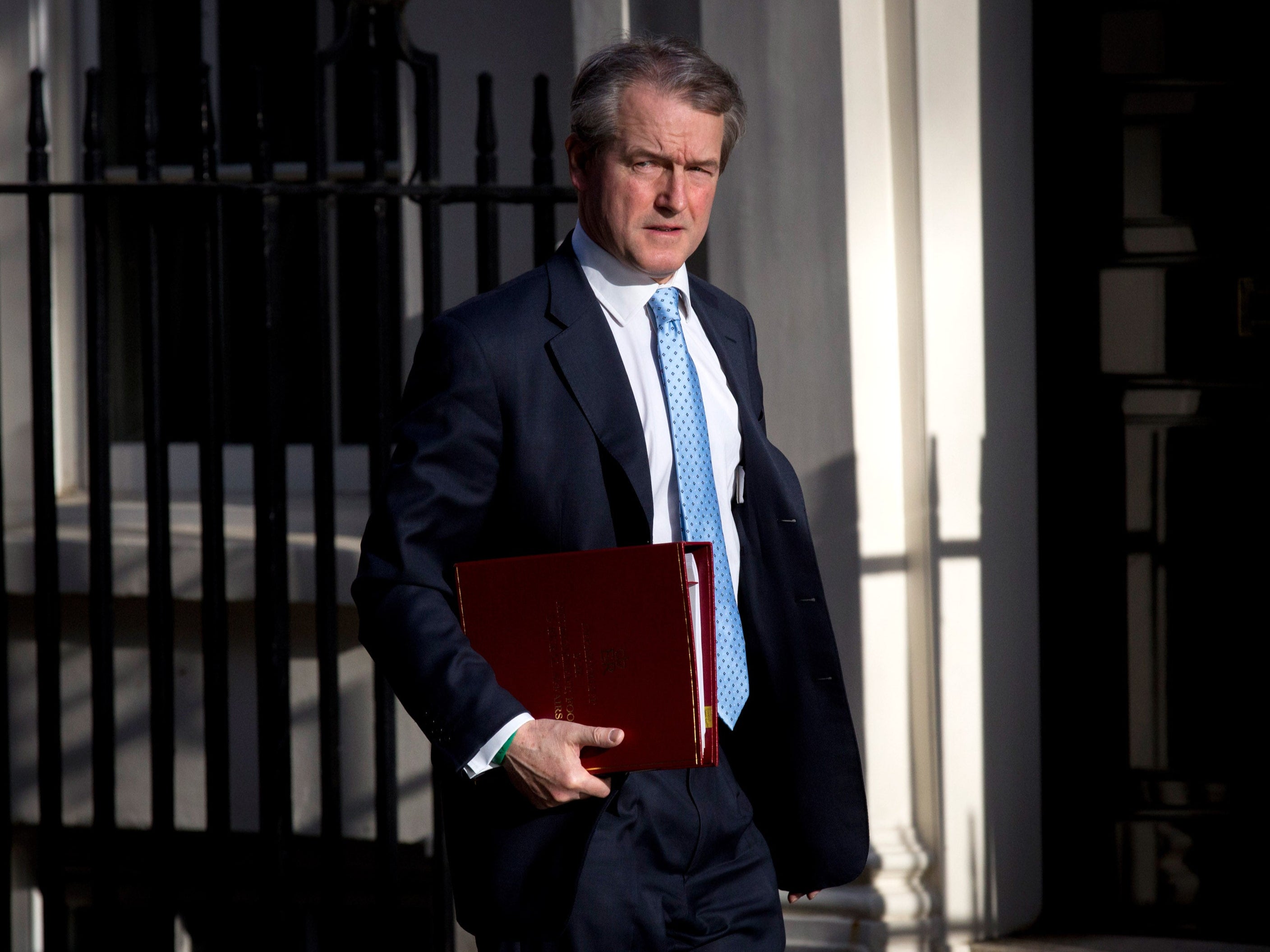Why MPs can’t afford to ignore the rules on lobbying
Members of parliament must balance their personal interests and financial needs with the high standards demanded by the public


At the heart of the Owen Paterson controversy, and thus the current debate on standards in public life is the issue of lobbying. It is also at the centre of some understandable confusion about what MPs are and are not allowed to do.
The first, basic difference to understand is that MPs are allowed to lobby ministers, fellow MPs and anyone else for that matter for various causes. MPs who oppose fox hunting, or green taxes, or want to argue for the rights of the people of South Sudan, say, are entitled to do so.
MPs are also allowed to have “second jobs”, such as company directorships, consulting fees for offering political or expert guidance, and practising trades and professions, such as journalism, the law or, more rarely, medicine. They can serve on the committees of NGOs, charities, and governing bodies of school or hospital trusts. And so on. But in all cases the interests need to be declared in the register of interests, and at the point of any correspondence of conversations with third parties, so everyone knows where an MP is coming from.
The trouble starts when they are both paid by a company, say, and then seek to further its interests in parliament in the course of their parliamentary work. Thus, what they are not allowed to do, broadly, is to lobby on behalf of private interests in return for money or benefits in kind (eg free holidays or paid secretarial assistance). This, as has been stated often in recent days, goes back to a resolution of the House of Commons dating back to 1695, which at least reminds us of the immutability of human nature. In the reign of William III and Mary, then, the Commons ruled for itself that “the offer of money, or other advantage, to any Member of Parliament for the promoting of any matter whatsoever, depending or to be transacted in Parliament, is a high crime and misdemeanour and tends to the subversion of the English constitution”.
Numerous supplementary resolutions have been passed since, playing catch-up with the ingenuity of our politicians in discovering fresh ways to dodge the rules. The guide to the 2015 Code of Conduct (the relevant one for the Paterson case) is a bit more nuanced, and creates more room for manoeuvre compared with the purity of the 1695 resolution:
“The lobbying rules do not prevent a Member holding a paid outside interest as a director, consultant, or adviser, or in any other capacity, whether or not such interests are related to membership of the House.
“The lobbying rules apply only to Members who receive an outside reward or consideration and whose activities would provide a financial or material benefit to the person or organisation providing that reward or consideration. They do not otherwise prevent Members from initiating or participating in proceedings or approaches to Ministers, other Members or public officials, even where they themselves may have a financial interest. In such cases the rules on registration and declaration apply. Members must also consider whether they have a conflict of interest. If so, they must resolve it, at once, in accordance with the Code of Conduct.”
Much of the conflicts of interest that can arise from this mixing of private interests and public office can be resolved by loudly declaring in no uncertain terms motives where a conflict of interest arises and in each occasion (which Paterson failed to do sometimes). Yet the general ban on active paid lobbying, particularly in cases where the MP initiates activity, rather than, say, speaking in debate on a bill she or he has had nothing to do with, is pretty absolute. One small exemption has arisen in recent years for “whistleblowing” – even if the MP’s private interests might incidentally benefit, there is a wider public interest. Paterson was found to have legitimately used the whistleblower exemption on one, initial occasion on food safety, but not subsequently.
Advocates of reform have long argued that all second “jobs” should be banned, paid or unpaid, but this seems harsh for cases such as Keir Starmer’s membership of the Youth Justice Legal Centre’s advisory board (no fee), or Graham Brady’s £8,000 a year as associate editor of The House magazine. Still, it would avoid any – or at least many – conflicts of interest or the perception of a conflict of interest. Constituents might, for example, wonder about the non-trivial 50 hours a month John Redwood spends on the investment committee of Charles Stanley, an investment firm.
As so often in the past, during the expenses scandal and various episodes of financial of personal misconduct, MPs have to balance their personal interests (in all senses) and their financial needs with the high standards demanded by the public, who regard the £81,932, plus accommodation allowance and exes, as more than enough. One Tory MP once joked that the only safe indulgence for any member of parliament was a bag of boiled sweets. He was right.



Join our commenting forum
Join thought-provoking conversations, follow other Independent readers and see their replies
Comments